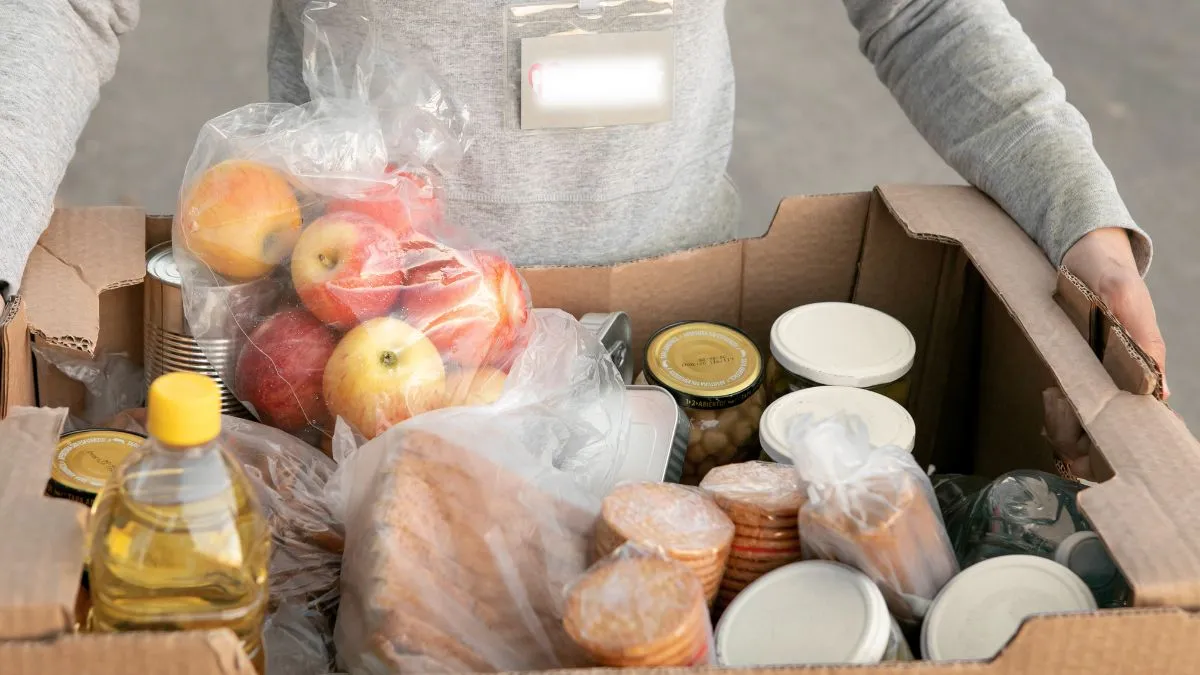
Heavy rainfall across several states in the country has led to a flood situation that is likely to culminate in severe flooding, damage, and a scarcity of essential supplies. States like Himachal Pradesh, Punjab, Uttarakhand and Delhi are on high alert due to heavy floods caused by torrential rains and cloudbursts. Many of these regions are experiencing flood-like situations already, which is expected to worsen in the coming days. Besides, overflowing rivers are leading to widespread waterlogging in the plains. In such a situation, people living in flood-prone areas must be ready to face the extremes and prepare a survival kit for themselves and their families. Read on to know what should be in your pantry to survive the floods.
Table of Content:-
During severe waterlogging and floods, you must be well-stocked with essential food items to stay well-fed without having to step out of the house amidst the calamity. This also helps in easing stress and fear during the unpredictable crisis period.
1. Non-Perishable Foods
Shelf-stable foods that do not require extensive cooking or refrigeration are called non-perishable foods. These can be stored at room temperature for many days without spoiling. These include fruits, vegetables, packed ready-to-eat food items and canned foods. The best items to include in this category are:
- Canned: fruits, vegetables, soups and meat.
- Grains & Dried Items: Rice, flour, pasta, oats, and dried beans.
- Nuts, Seeds, & Bars: Nut butters like almond butter & peanut butter, dry fruits, seeds and granola bars.
- Other Kitchen Staples: Salt, sugar, basic spices, oils, tea and coffee.
Also Read: Do Spices Expire? What Is Their Shelf Life And When To Toss Them?
2. Dry Fruits And Nuts
One of the convenient and nutrition-rich foods are nuts & dry fruits. These are fulfilling, healthy, nutritious and provide energy. They have a long shelf life when stored properly. You can easily munch on them when you feel hungry, which will help you feel full for a long time. Some of the nuts that you can store are almonds, cashews, pistachios, raisins, walnuts, dates and fox nuts.
3. Bottled Water
Water is a basic necessity for human existence. Even if you feel you have ample water at home, you must store as much clean drinking water as possible. The flood situation can get unpredictable wherein you may not be able to outsource water for many days. Therefore, you must be prepared for the worst and keep clean water for at least 3-4 days.
Also Read: Boiled, Filtered, Or Bottled Water, What Is Recommended Safe For Drinking by Doctors
4. Ready-To-Eat Snacks
Ready-to-eat food items, especially snacks, come in handy in such tough situations. Fill a big bag with easy to consume snacks that can include namkeens, biscuits, fruit cakes, milk toast, mathri, granola bars, trail mix, dried fruits, to name but a few. You can add as many things as you want as per your liking.
Also Read: 5 Reasons Why You Should Indulge In Ready-To-Eat Meals And Snacks Mindfully
5. Other Pantry Staples
Apart from the above shared items, you must also keep a good stock of commonly consumed foods that help you and your family sustain during emergencies. This includes lentils and rice in waterproof containers to prevent them from spoiling and getting bugs. In addition to this, you must also keep an ample supply of basics such as flours, oils, condiments, seasonings and spices.
Keeping some tea, coffee, milk powder, condensed milk and sweeteners would also be beneficial to keep yourself hydrated and comforted. This would help you survive during the challenging times without having to require milk.
Along with these food items, you must also keep a portable stove and fuel to support your cooking in case you don’t get gas and electricity during the crisis period.
Also watch this video
How we keep this article up to date:
We work with experts and keep a close eye on the latest in health and wellness. Whenever there is a new research or helpful information, we update our articles with accurate and useful advice.
Current Version